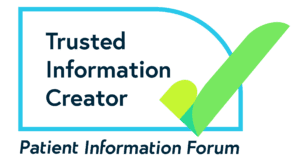A note on terms:
Everyone has breast tissue and people of all genders can get breast cancer. To be clear and consistent, we use the word ‘breasts’ in our health information, rather than boobs, pecs or chest. When we say breasts, we mean the tissue from your rib cage up to your collarbone and armpits, including your nipples.
What is BRCA?
BRCA is shorthand for Breast Cancer, but when we talk about BRCA we mean cell mutations of the BRCA gene, called BRCA 1 and BRCA 2. These cell mutations run in families (genetic), so they are also known as:
- BRCA gene mutation.
- Hereditary breast cancer.
- Inherited altered gene.
Fewer than 1 in 100 breast cancers are caused by a mutation of the BRCA gene. If you have a BRCA gene mutation, your risk of getting breast cancer is between 50% – 90% higher than someone without the mutation.
We all have genes that protect us against cancer. BRCA gene mutations mean one of those genes is faulty. That means it can’t repair any DNA damage caused by cancer, and the cancer can grow. Having the BRCA gene mutation doesn’t mean you have breast cancer, but it does mean your risk of getting breast cancer is much higher. There are other genes that have been shown to increase the risk of getting breast cancer, but BRCA 1 and BRCA 2 are the most common.
BRCA Stories
Fole tested positive for the BRCA 2 gene mutation at 24 years-old after 18 months of genetic testing. Knowing her risk of a breast cancer diagnosis was high, she chose to undergo risk-reducing surgery which has given her the freedom to live her life to the fullest.
Getting Tested
If you are concerned that you have a family history of breast cancer, and you are worried about your own risk, talk to your Doctor. If your Doctor thinks you may have a risk of carrying the BRCA gene mutation, they might suggest you are tested. The genetic test for BRCA has 2 steps:
- Your relative with cancer has a blood test to see if they have the gene mutation. The results of this can take 4 to 8 weeks.
- If your relative’s test is positive, you can have a blood test at a genetic clinic to see if you have the same gene mutation and predict your risk of getting breast cancer.
If relatives with cancer are not available, you can have the BRCA test if you have at least a 10% chance of having the gene mutation. This usually means you have a very strong history of breast cancer at a young age in your family.
BRCA in the Jewish community
Having Jewish ancestry increases your risk of having a BRCA gene fault- 1 in 40 Ashkenazi Jews and around 1 in 140 Sephardi Jews has a faulty BRCA gene, compared to around 1 in 250 individuals in the UK general population.
NHS England is now offering free BRCA gene testing for anyone living in England, aged 18 or over with one or more Jewish grandparent.
For more information visit https://jewishbrca.org/
CoppaFeel! Self-Checkout

CoppaFeel! is accredited by the Patient Information Forum.
Our health information carries the PIF TICK quality mark, so you can be assured it is reliable and trustworthy.
![]()
This information was published in April 2021. It will be revised in April 2024.
